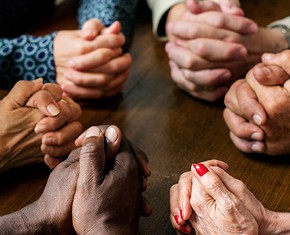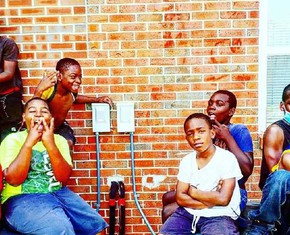The views expressed in our content reflect individual perspectives and do not represent the authoritative views of the Baha'i Faith.
Baha’is do not see science and religion as rivals. Those two domains are not locked in battle, head-to-head, pushing in opposite directions—or at least, they shouldn’t be.
The knowledge each discipline generates has to do with different things and relies on different methods. When science and religion appear to contradict each other, the Baha’i teachings say, it’s because we’re doing one or both of them in the wrong way.
The Baha’i teachings call on humanity to set the balance right and to draw on both science and religion in their efforts to advance the social and spiritual well-being of all people:
Religion and science are the two wings upon which man’s intelligence can soar into the heights, with which the human soul can progress. It is not possible to fly with one wing alone! Should a man try to fly with the wing of religion alone he would quickly fall into the quagmire of superstition, whilst on the other hand, with the wing of science alone he would also make no progress, but fall into the despairing slough of materialism. –Abdu’l-Baha, Paris Talks, p. 183.
Put all your beliefs into harmony with science; there can be no opposition, for truth is one. When religion, shorn of its superstitions, traditions, and unintelligent dogmas, shows its conformity with science, then will there be a great unifying, cleansing force in the world which will sweep before it all wars, disagreements, discords and struggles—and then will mankind be united in the power of the Love of God. – Ibid., p. 186.
To bring belief into harmony with science can imply so much more than simply not saying things easily refutable by science. If people of faith merely refrained from denying the theory of evolution, or from stating that the Earth is only 6000 years old, that doesn’t immediately turn religion into a force for social progress. It just means that they have stopped using religion as a deadweight upon the forward movement of humanity. It takes much more to create what Abdu’l-Baha called: “a great unifying cleansing force in the world” that will make humanity “united in the power of the love of God.”
To bring that about, humanity must learn how to draw on the creative power of science to give weight and substance to the spiritual quest for a moral and just society.
For over a century, Baha’is around the world have striven to embody the Baha’i teachings in their individual conduct, the life of their communities, and the functioning of their institutions. Under the direction of the Universal House of Justice, the international governing body of the Baha’i Faith, an evolving framework of action has emerged that not only adopts a spiritual approach to addressing social issues, but conceives of its work as a scientific process of systematic learning.
The objective of such learning is not just to pass on received knowledge, but to generate new knowledge about how to practice the oneness of humanity and draw spiritually nearer to God, our Creator. In so doing, the Universal House of Justice has taken steps to establish this process of social and spiritual transformation upon a firm scientific basis. This doesn’t mean Baha’is serving others in their neighborhoods perform precise highly-controlled studies that could be submitted to scientific journals or lab coat scientific research. Instead, it means reading the reality of the world around us, weighing evidence, and testing hypotheses about what works in social practice. The hard data is not mere numbers—it’s the lived experience of abundant generous service to one’s community.
On this topic the Universal House of Justice has written:
… the Baha’i community has adopted a mode of operation characterized by action, reflection, consultation and study—study which involves not only constant reference to the writings of the Faith but also the scientific analysis of patterns unfolding. Indeed, how to maintain such a mode of learning in action, how to ensure that growing numbers participate in the generation and application of relevant knowledge, and how to devise structures for the systemization of an expanding worldwide experience and for the equitable distribution of the lessons learned—these are, themselves, the object of regular examination. – The Universal House of Justice, to the Baha’is of Iran, 2 March 2013.
At the same time, none of this has become too complicated or overly-sophisticated for those who don’t think of themselves as students of science. These “structures for the systematization of an expanding worldwide experience” are based at the grassroots level on warm informal conversations between peers, and on selflessly giving of your time and effort to help others.
When we make a point of chatting with each other in a way that sheds light on our situation, rather than casting more shadows, we gradually develop a body of knowledge that can help us progress. Baha’is share these insights and experiences at community gatherings, discussing them in the context of what is being said and done in other communities, and evaluating them in light of the unity they produce. Anything that seems especially potent gets passed on to other communities. Then the knowledge this process generates circulates at a global level.
But none of these systematic structures can have any effect if ordinary people in ordinary settings aren’t striving to make sense of what they experience on a daily basis and trying to cut through the illusions and prejudices that bombard us from every direction. The science here involves us all, pooling the localized intelligence of the diverse parts of humanity into one forward movement.
With both religion and science, our intelligence has two wings. Everyday, Baha’is strive to learn how to fly with both of those wings.
















Comments
Sign in or create an account
Continue with Googleor